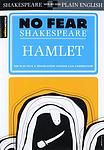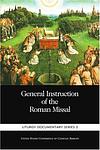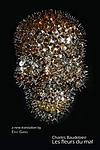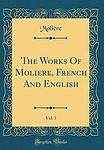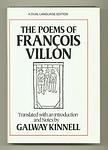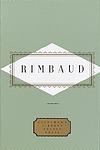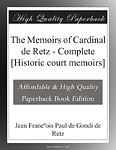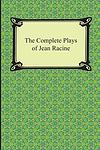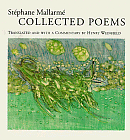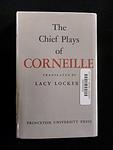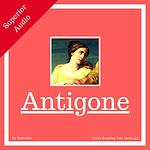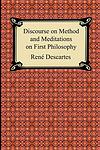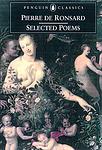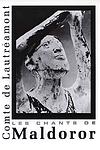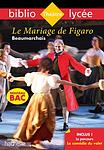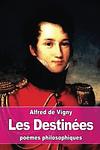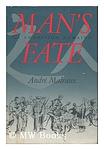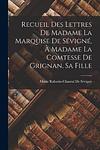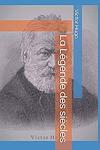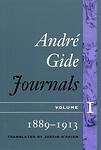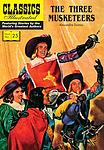Pour une Bibliothèque Idéale
This is one of the 273 lists we use to generate our main The Greatest Books list.
-
First Folio by William Shakespeare
This collection is a compilation of 36 plays by a renowned English playwright, published seven years after his death. It includes comedies, histories, and tragedies, some of which had never been published before. Notable works in the compilation include "Macbeth," "Julius Caesar," "Twelfth Night," "The Tempest," and "As You Like It." The collection is considered one of the most influential books ever published in the English language, as it preserved many of the playwright's works that might have otherwise been lost.
-
The Bible by Unknown
The Bible is the central religious text of Christianity, comprising the Old and New Testaments. It features a diverse collection of writings including historical narratives, poetry, prophecies, and teachings. These texts chronicle the relationship between God and humanity, detail the life, death, and resurrection of Jesus Christ, and follow the early Christian church. Considered divinely inspired by believers, it serves as a foundational guide for faith and practice, influencing countless aspects of culture and society worldwide.
-
In Search of Lost Time by Marcel Proust
This renowned novel is a sweeping exploration of memory, love, art, and the passage of time, told through the narrator's recollections of his childhood and experiences into adulthood in the late 19th and early 20th century aristocratic France. The narrative is notable for its lengthy and intricate involuntary memory episodes, the most famous being the "madeleine episode". It explores the themes of time, space and memory, but also raises questions about the nature of art and literature, and the complex relationships between love, sexuality, and possession.
-
Essays by Michel de Montaigne
This collection of essays explores a wide range of topics such as solitude, cannibals, the power of the imagination, the education of children, and the nature of friendship. The author employs a unique and personal approach to philosophy, using anecdotes and personal reflections to illustrate his points. The essays provide a profound insight into human nature and condition, and are considered a significant contribution to both literature and philosophy.
-
Gargantua and Pantagruel by Francois Rabelais
"Gargantua and Pantagruel" is a satirical and humorous tale of two giants, Gargantua and his son Pantagruel. The narrative is filled with bawdy humor, wordplay, and grotesque and exaggerated characters, reflecting the realities of 16th-century France. The book is also known for its profound insights on education, religion, and politics, often criticizing the corruption and hypocrisy of the powerful. The novel is a rich blend of fantasy, comedy, and philosophical discourse, making it a classic of Renaissance literature.
-
The Flowers of Evil by Charles Baudelaire
"The Flowers of Evil" is a collection of poems that explore themes of decadence and eroticism, and the changing nature of beauty in the rapidly industrializing Paris during the 19th century. The work is renowned for its exploration of the paradoxes of pleasure and pain, the exotic and the commonplace, and the boundaries of morality and aesthetics. The poems challenge traditional notions of good and evil, suggesting that beauty can be found in unexpected and even disturbing places.
-
Pensées by Blaise Pascal
"Pensées" is a collection of philosophical and theological thoughts and ideas by a renowned French mathematician and physicist. The book delves into various aspects of human existence, exploring the nature of faith, reason, and the human condition. It also presents arguments for the existence of God, including the famous wager argument. The book is known for its profound insights into the human experience and its exploration of the complexities of belief and doubt.
-
The Works of Moliere by Molière
This book is a compilation of the works of a renowned 17th-century French playwright, who is often considered one of the greatest masters of comedy in Western literature. His plays are known for their satirical examination of social norms and human folly, featuring a range of characters from the foolish and the pedantic to the hypocritical and the corrupt. Some of his most famous works included in this collection are "Tartuffe," "The Misanthrope," and "The Imaginary Invalid."
-
The Confessions of Jean-Jacques Rousseau by Jean-Jacques Rousseau
"The Confessions of Jean-Jacques Rousseau" is an autobiographical work by a prominent philosopher of the Enlightenment era, who candidly shares his life story, from his humble beginnings in Geneva to his later years in exile. The book delves into his personal struggles, his intellectual journey, and his relationships, all while exploring his philosophical ideas on education, politics, and morality. The author's introspective narrative provides a unique perspective on his life and times, making it a seminal work in the history of autobiography.
-
The Red and the Black by Stendhal
The novel is a detailed psychological portrait of Julien Sorel, a young man from a provincial background who aspires to rise above his humble beginnings. He uses his intelligence and hypocrisy to advance in the post-Napoleonic French society, which is deeply divided by class and political loyalties. The story is a critique of the society's materialism and hypocrisy as Julien's ambitions lead him to a tragic end. The title refers to the contrasting uniforms of the army and the church, the two routes available to him for upward mobility.
-
The Complete Works of Plato by Plato
This comprehensive collection compiles the philosophical works of an influential Classical Greek philosopher. The book includes his dialogues, letters, and philosophical musings, exploring topics such as justice, beauty, truth, mathematics, politics, love, and virtue. The philosopher's ideas, including the theory of forms, the allegory of the cave, and the philosopher king, have had a profound impact on Western thought and continue to be studied and debated in modern philosophical and academic circles.
-
The Charterhouse of Parma by Stendhal
The novel follows the life of a young Italian nobleman, who, driven by romantic ideals and a thirst for adventure, leaves his comfortable life to join Napoleon's army. After surviving many trials and tribulations, he returns home to a life of political intrigue, love affairs, and power struggles in the court of Parma. The narrative provides a vivid and satirical depiction of the political and social life in Italy during the 19th century.
-
The Poems of Francois Villon by François Villon
This book is a collection of poems by a renowned 15th-century French poet, known for his raw and emotive language. His works vividly depict the harsh realities of life in medieval France, often incorporating themes of love, death, and fate. The poet's life of crime and vagabondage is often reflected in his poetry, making his work a unique blend of high art and gritty realism. The collection is considered a cornerstone of French literature and remains influential in the realm of poetry.
-
Collected Poems by Arthur Rimbaud
"Collected Poems" is a compilation of works by a renowned French poet, known for his influence on modern literature and arts, which prefigured surrealism. His poetry is characterized by its innovative use of symbolism and imagery that explores themes such as adolescence, rebellion, and the loss of innocence. The collection includes both his early works, filled with the youthful vitality and rebellious spirit, and his later, more introspective pieces.
-
Memoirs of Cardinal De Retz by Cardinal de Retz
"Memoirs of Cardinal De Retz" is an autobiographical account of the life of a 17th century French clergyman who played a significant role in the Fronde, a series of civil wars in France. The book provides a detailed and insightful perspective on the political, religious, and social climate of the time. It chronicles the Cardinal's rise to power, his involvement in the civil wars, his relationship with key figures of the era, and his eventual imprisonment. The memoir is noted for its candid and often critical portrayal of the author's contemporaries.
-
War and Peace by Leo Tolstoy
Set in the backdrop of the Napoleonic era, the novel presents a panorama of Russian society and its descent into the chaos of war. It follows the interconnected lives of five aristocratic families, their struggles, romances, and personal journeys through the tumultuous period of history. The narrative explores themes of love, war, and the meaning of life, as it weaves together historical events with the personal stories of its characters.
-
The Memoirs of the Duke of Saint-Simon on the Reign of Louis XIV. and the Regency by Louis de Rouvroy Saint-Simon (duc de)
This book is a detailed account of the reign of Louis XIV and the Regency, as witnessed and experienced by a prominent nobleman of the time. The author offers an insider's perspective on key historical events, courtly intrigues, and the personalities of leading figures, including the king himself. His observations provide an invaluable glimpse into the politics, society, and culture of 17th and early 18th century France.
-
Don Quixote by Miguel de Cervantes
This classic novel follows the adventures of a man who, driven mad by reading too many chivalric romances, decides to become a knight-errant and roam the world righting wrongs under the name Don Quixote. Accompanied by his loyal squire, Sancho Panza, he battles windmills he believes to be giants and champions the virtuous lady Dulcinea, who is in reality a simple peasant girl. The book is a richly layered critique of the popular literature of Cervantes' time and a profound exploration of reality and illusion, madness and sanity.
-
The Complete Plays of Jean Racine by Jean Racine
This collection presents all the dramatic works of a renowned 17th-century French playwright, known for his mastery of French classical tragedy. The plays explore themes of love, power, tragedy, and the complex dynamics of political and personal life. The author's poetic style, psychological depth, and exploration of classical themes have made him one of the most influential figures in French drama. The collection includes both his well-known and lesser-known works, providing a comprehensive look at his contribution to theatre.
-
Oresteia by Aeschylus
"Oresteia" is a trilogy of Greek tragedies that tells the story of the House of Atreus. It begins with King Agamemnon's return from the Trojan War and his subsequent murder by his wife, Clytemnestra, and her lover, Aegisthus. The second play focuses on the revenge of their son, Orestes, who kills his mother and her lover to avenge his father's death. The final play deals with the trial of Orestes by the gods for the crime of matricide, resulting in his acquittal and the end of the curse on the House of Atreus. The trilogy explores themes of justice, vengeance, and the intervention of the gods in human affairs.
-
Prometheus Bound by Aeschylus
"Prometheus Bound" is a tragedy set in ancient Greece that tells the story of the Titan Prometheus, who defies the gods by giving humans the gift of fire, a symbol of knowledge and civilization. As punishment, Zeus chains Prometheus to a rock in the Caucasus Mountains where he is tormented by a vulture that eats his liver every day, only for it to grow back overnight. Despite his suffering, Prometheus refuses to submit to Zeus' will, embodying the human spirit's unyielding resistance against oppression.
-
Seven Against Thebes by Aeschylus
"Seven Against Thebes" is a classic Greek tragedy that revolves around the conflict between the two sons of Oedipus, Eteocles and Polynices, who are fighting for the throne of Thebes. The brothers ultimately kill each other in battle, fulfilling their father's curse that they would divide their inheritance by the sword. The play ends with the women of Thebes mourning the death of the brothers and the city in ruins. The tale is a powerful exploration of family loyalty, power struggles and the consequences of destiny and fate.
-
The Persians by Aeschylus
"The Persians" is an ancient Greek tragedy that tells the story of the Persian King Xerxes and his failed invasion of Greece. The narrative focuses on the aftermath of the Battle of Salamis, depicting the mourning of Xerxes' mother and the ghost of his father Darius, who prophesied the fall of the Persian Empire. It serves as a critique of the arrogance and hubris of Xerxes and a celebration of Greek victory, while also exploring themes of war, loss, and the consequences of ambition.
-
The Suppliants by Aeschylus
"The Suppliants" is a classic Greek drama that revolves around a group of fifty women who flee from Egypt to avoid marrying their cousins, seeking asylum in the city of Argos. The King of Argos is torn between offering them protection or facing the wrath of the Egyptians. The play explores themes of democracy, law, and the struggle between the sexes. The drama ends on a cliffhanger, with the Egyptian suitors arriving to reclaim the women and threatening war.
-
The Brothers Karamazov by Fyodor Dostoevsky
This classic novel explores the complex, passionate, and troubled relationship between four brothers and their father in 19th century Russia. The narrative delves into the themes of faith, doubt, morality, and redemption, as each brother grapples with personal dilemmas and family conflicts. The story culminates in a dramatic trial following a murder, which serves as a microcosm of the moral and philosophical struggles faced by each character, and by extension, humanity itself.
-
Collected Poems by Stéphane Mallarmé
"Collected Poems" is a compilation of poetic works by a renowned French poet. The book offers readers a deep exploration into the intricate world of symbolism and the power of language. The author's artistic use of words to create vivid imagery and evoke profound emotions is evident throughout the collection. His poems delve into themes of reality, dreams, and the interplay between the two, offering a unique perspective on the human experience.
-
Fables of La Fontaine by Jean de La Fontaine
"Fables of La Fontaine" is a collection of moralistic tales, often involving animals and inanimate objects with human characteristics. These stories, written in verse, offer valuable life lessons and social commentaries. They are acclaimed for their wit, wisdom, and the skill with which they are told, making them enduring classics in the world of literature.
-
Faust by Johann Wolfgang von Goethe
The book is a tragic play in two parts that tells the story of a scholarly man named Faust, who becomes dissatisfied with his life and makes a pact with the devil, Mephistopheles. In exchange for unlimited knowledge and worldly pleasures, Faust agrees to give his soul to Mephistopheles after death. The narrative explores themes of ambition, despair, love, and redemption, ultimately leading to Faust's salvation.
-
Alcools by Guillaume Apollinaire
"Alcools" is a collection of poems that explores various themes such as love, loss, and the passage of time. The work is notable for its innovative use of form and syntax, often eschewing traditional punctuation and capitalization. The poems are rich in imagery and symbolism, drawing on a wide range of influences from mythology to modern urban life. The collection is considered a landmark of modernist literature, reflecting the author's unique vision and distinctive poetic voice.
-
A Sentimental Education by Gustave Flaubert
A Sentimental Education is a classic French novel set in the mid-19th century, focusing on the life of a young man named Frederic Moreau. Frederic, from a provincial background, moves to Paris and becomes infatuated with an older woman, Madame Arnoux. The novel traces Frederic's life and romantic pursuits, as well as his friendships and experiences in Paris, against the backdrop of significant historical events like the 1848 Revolution. The story is a critique of the French middle class and their materialistic values, illustrating the disillusionment and moral corruption of the time.
-
The Odyssey by Homer
This epic poem follows the Greek hero Odysseus on his journey home after the fall of Troy. It takes Odysseus ten years to reach Ithaca after the ten-year Trojan War. Along the way, he encounters many obstacles including mythical creatures, divine beings, and natural disasters. Meanwhile, back in Ithaca, his wife Penelope and son Telemachus fend off suitors vying for Penelope's hand in marriage, believing Odysseus to be dead. The story concludes with Odysseus's return, his slaughter of the suitors, and his reunion with his family.
-
Plays by Pierre Corneille
This collection of plays by a renowned 17th-century French dramatist features a variety of works that have significantly influenced the development of classical French tragedy. The plays often explore themes of honor, fate, and moral integrity, with complex characters who grapple with high-stakes moral and ethical dilemmas. The author's skillful use of language and his innovative approach to dramatic structure and characterization have made these plays enduring classics of French literature.
-
The Divine Comedy by Dante Alighieri
In this epic poem, the protagonist embarks on an extraordinary journey through Hell (Inferno), Purgatory (Purgatorio), and Paradise (Paradiso). Guided by the ancient Roman poet Virgil and his beloved Beatrice, he encounters various historical and mythological figures in each realm, witnessing the eternal consequences of earthly sins and virtues. The journey serves as an allegory for the soul's progression towards God, offering profound insights into the nature of good and evil, free will, and divine justice.
-
Memoirs From Beyond the Grave by François René De Chateaubriand
"Memoirs From Beyond the Grave" is an autobiographical work that chronicles the author's life and experiences in the late 18th and early 19th century. It provides a detailed account of his personal life, his political career, his travels, and his encounters with significant historical figures of the time. The book is also a reflection of the author's thoughts on religion, philosophy, and literature, offering a profound insight into the social and political changes that occurred during the French Revolution and the Napoleonic era.
-
The Human Comedy by Honoré de Balzac
"The Human Comedy" is a series of interconnected novels and stories that depict the lives, ambitions, and failures of a wide range of characters in French society during the first half of the 19th century. The series explores the complexities of human nature and society, offering a panorama of French life from the aristocracy to the working class. It presents a detailed and vividly realistic portrayal of the social, political, and economic life of the time.
-
Electra by Sophocles
"Electra" is a classic Greek tragedy that revolves around the character of Electra and her thirst for revenge. After her father, the king, is murdered by her mother and her mother's lover, Electra and her brother, Orestes, plot to avenge their father's death. The story is a complex exploration of justice, vengeance, and familial duty, depicting Electra's struggle between her desire for revenge and the moral implications of matricide.
-
Oedipus at Colonus by Sophocles
"Oedipus at Colonus" is a tragic play that follows the final days of Oedipus, the former king of Thebes. Oedipus, now blind and exiled, arrives at the town of Colonus where he is initially rejected due to the curse that follows him. However, after revealing a prophecy that his burial place will bring prosperity to the city that hosts it, he is allowed to stay. The play explores themes of fate, guilt, and redemption, ending with Oedipus's peaceful death and ascension to a semi-divine status.
-
Ajax by Sophocles
"Ajax" is a classic Greek tragedy that revolves around the character of Ajax, a heroic warrior in the Trojan War who falls into a state of madness and despair when he is passed over for the honor of inheriting the armor of the fallen hero, Achilles. In his fury, Ajax slaughters a flock of sheep, believing them to be his comrades. When he regains his sanity and realizes what he has done, he is filled with shame and ultimately takes his own life. The play explores themes of honor, pride, and the tragic consequences of unchecked rage.
-
Oedipus the King by Sophocles
"Oedipus the King" is a tragic play that revolves around the life of Oedipus, the king of Thebes, who is prophesied to kill his father and marry his mother. Despite his attempts to avoid this fate, Oedipus unknowingly fulfills the prophecy. When he discovers the truth about his actions, he blinds himself in despair. The play explores themes of fate, free will, and the quest for truth, highlighting the tragic consequences of human hubris and ignorance.
-
Philoctetes by Sophocles
"Philoctetes" is a Greek tragedy that tells the story of a skilled archer abandoned on a deserted island by the Greeks during the Trojan War, due to a foul-smelling wound on his foot. Years later, the Greeks discover a prophecy that they will need Philoctetes and his magical bow to win the war. They send Odysseus and Neoptolemus to retrieve him, leading to a moral dilemma as they must decide whether to deceive the bitter and mistrustful Philoctetes or to persuade him to willingly join their cause. The play explores themes of suffering, deceit, and the struggle between personal integrity and duty.
-
Women of Trachis by Sophocles
This ancient Greek tragedy follows the story of a woman who mistakenly kills her husband, a legendary hero, with a poisoned shirt. She had been given the shirt by a dying centaur who told her it would ensure her husband's loyalty. However, the centaur had actually been fatally wounded by the hero, and the shirt was soaked in the centaur's poisonous blood. The woman kills herself upon realizing her tragic mistake.
-
Antigone by Sophocles
This ancient Greek tragedy follows the story of Antigone, a young woman who defies the king's edict in order to bury her brother according to their religious customs. The king, her uncle, sentences her to death for her disobedience, leading to a series of tragic events including his own son's suicide. The play explores themes of loyalty, honor, obedience, and the conflict between the laws of the state and the laws of the gods.
-
Ulysses by James Joyce
Set in Dublin, the novel follows a day in the life of Leopold Bloom, an advertising salesman, as he navigates the city. The narrative, heavily influenced by Homer's Odyssey, explores themes of identity, heroism, and the complexities of everyday life. It is renowned for its stream-of-consciousness style and complex structure, making it a challenging but rewarding read.
-
Dangerous Liaison by Pierre Choderlos de Laclos
"Dangerous Liaison" is a tale of manipulation, revenge, and seduction set in the French aristocracy before the French Revolution. The novel follows the Marquise de Merteuil and the Vicomte de Valmont, two rivals who use sex as a weapon to humiliate and degrade others, all the while enjoying their cruel games. Their targets are the virtuous (and married) Madame de Tourvel and the young Cecile de Volanges. The book is a dramatic exploration of decadence, corruption, and ultimate retribution.
-
Gulliver's Travels by Jonathan Swift
This classic satire follows the travels of a surgeon and sea captain who embarks on a series of extraordinary voyages. The protagonist first finds himself shipwrecked on an island inhabited by tiny people, later discovers a land of giants, then encounters a society of intelligent horses, and finally lands on a floating island of scientists. Through these bizarre adventures, the novel explores themes of human nature, morality, and society, offering a scathing critique of European culture and the human condition.
-
One Hundred and One Poems by Paul Verlaine by Paul Verlaine
This is a collection of 101 poems by a renowned French poet, showcasing his unique style and themes. The poems touch on a variety of subjects, including love, nature, and the human condition. The author's use of rhythm, rhyme, and vivid imagery creates a deeply emotional and evocative reading experience. His work is known for its musicality and its ability to evoke strong emotions, making this collection a must-read for any lover of poetry.
-
Madame Bovary by Gustave Flaubert
Madame Bovary is a tragic novel about a young woman, Emma Bovary, who is married to a dull, but kind-hearted doctor. Dissatisfied with her life, she embarks on a series of extramarital affairs and indulges in a luxurious lifestyle in an attempt to escape the banalities and emptiness of provincial life. Her desire for passion and excitement leads her down a path of financial ruin and despair, ultimately resulting in a tragic end.
-
A Season in Hell by Arthur Rimbaud
"A Season in Hell" is a deeply introspective work, exploring the author's tumultuous life and struggles through a series of prose poems. The author grapples with his own moral crisis, spiritual torment and the anguish of unrequited love, while also critiquing society and the human condition. This journey through despair and redemption, filled with vivid and surreal imagery, is considered one of the pioneering works of Symbolist literature.
-
Discourse on Method by Rene Descartes
The book is a philosophical and autobiographical treatise that introduces a new form of scientific and philosophical method, which emphasizes on doubt and systematic questioning as the primary means to achieve knowledge. The author argues that by doubting everything, one can then rebuild knowledge, piece by piece, on a more solid foundation. This method is applied to a wide range of topics, including God's existence, the nature of the human mind and body, and the acquisition of knowledge.
-
Manon Lescaut by Abbe Prevost
"Manon Lescaut" is a tragic novel about a young man of good family who sacrifices everything for his passionate love for a beautiful but deceitful woman, Manon. Despite his sincere love for Manon, she continually betrays him for wealth and comfort, leading to their downfall. The story is a cautionary tale about the destructive power of obsessive love and the tragic consequences of a lack of moral strength and self-discipline.
-
Selected Poems by Pierre Ronsard
"Selected Poems" is a collection of works by a renowned French poet, showcasing his mastery of the sonnet and ode forms. The poet's works are deeply influenced by classical Greek and Roman literature, as well as contemporary Italian poets. His poems are known for their exploration of love, beauty, and the fleeting nature of life, often expressed through intricate metaphors and vivid imagery. The collection also includes some of his most famous works, which have had a profound influence on French literature.
-
Lysistrata by Aristophanes
"Lysistrata" is a comedic play set in ancient Greece, where the women of Athens, led by the eponymous character, decide to withhold sexual privileges from their husbands and lovers in order to force them to negotiate a peaceful end to the Peloponnesian War. Along with the women of Sparta, they seize the Acropolis and the treasury, and through their non-violent resistance, they manage to bring about a reconciliation between the warring states. The play is a humorous exploration of gender roles and the power of passive resistance.
-
The Birds by Aristophanes
This ancient Greek comedy play revolves around two men who are fed up with the problems of human society and decide to create a utopian city in the clouds with the help of birds. Their city, 'Cloudcuckooland', becomes popular and attracts gods and humans alike, leading to a series of humorous and satirical events. The play is a satire on political and social life in Athens, poking fun at its democracy, bureaucracy, and warfare.
-
The Clouds by Aristophanes
"The Clouds" is a satirical play that critiques the intellectual and moral corruption of Athenian society by focusing on a father-son relationship. The father, in an effort to evade debt, sends his son to a school of sophistry to learn the art of manipulating language and logic to win arguments. The story explores themes of education, morality, and the conflict between traditional and modern values. The play is well-known for its critical portrayal of Socrates as a sophist and its comedic elements.
-
Annals by Cornelius Tacitus
"Annals" is a historical work that provides a comprehensive account of the Roman Empire from the reign of Tiberius in 14 AD to the death of Nero in 68 AD. The author, a senator and historian of the Roman Empire, explores the inner workings of Roman politics, military campaigns, and social culture during this period. The book offers an in-depth look at the political machinations, power struggles, and the moral decay of the Roman elite, providing a critical perspective on the Roman emperors and their rule.
-
Histories by Cornelius Tacitus
"Histories" is a comprehensive account of the Roman Empire from 69-96 AD, a period marked by significant political turmoil. It provides an in-depth look at the reigns of four emperors: Galba, Otho, Vitellius, and Vespasian, along with the social and political upheavals of the time. The narrative also covers the Jewish rebellion and the burning of the Jerusalem Temple, offering a rich historical context of the period. Despite some gaps in the record, it remains a crucial primary source for understanding this era of Roman history.
-
Ethics by Baruch de Spinoza
"Ethics" is a philosophical work that explores complex ideas about God, the universe, human emotions, and the path to enlightenment. The book outlines a metaphysical, epistemological, and ethical system in which God and the universe are one and the same, rejecting traditional notions of a personal deity and asserting that understanding the natural world leads to peace of mind and happiness. The work delves into the nature of the human mind and its emotions, advocating for the pursuit of reason and knowledge to achieve a calm, enlightened state.
-
Poems of Friedrich Hölderlin by Friedrich Holderlin
This book is a collection of poems by a renowned German poet of the late 18th and early 19th century. The poems reflect the author's deep connection with nature, his philosophical musings on the divine and the human condition, and his struggles with mental illness. His work is seen as a bridge between the rationalism of the Enlightenment and the passion of Romanticism, and his unique style and themes have had a profound influence on later generations of poets and thinkers.
-
Les Filles du feu by Gerard de Nerval
"Les Filles du feu" is a collection of short stories and poems that explore the author's fascination with the feminine ideal and his own experiences with love, loss, and madness. The book's central theme is the author's quest for the ideal woman, represented in various forms in different stories. The most famous story in the collection, "Sylvie," is a semi-autobiographical account of the author's romantic relationships with three women, exploring themes of time, memory, and idealized love. The book also includes a series of sonnets dedicated to the author's beloved, as well as a prose poem that recounts his experiences with madness and his visions of a mystical world.
-
Robinson Crusoe by Daniel Defoe
The book is a classic adventure novel about a man who spends 28 years on a remote tropical island near Trinidad, encountering cannibals, captives, and mutineers before being rescued. The story is noted for its realistic portrayal of the protagonist's physical and psychological development and for its detailed depiction of his attempts to create a life for himself in the wilderness. The novel has been interpreted as an allegory for the development of civilization, as well as a critique of European colonialism.
-
Confessions by Augustine
"Confessions" is an autobiographical work by a renowned theologian, in which he outlines his sinful youth and his conversion to Christianity. It is written in the form of a long, introspective prayer directed to God, exploring the author's spiritual journey and deep philosophical ponderings. The book is renowned for its eloquent and deeply personal exploration of faith, making it a cornerstone of Christian theology and Western literature.
-
Maldoror (Les Chants de Maldoror) by Comte de Lautréamont
"Maldoror (Les Chants de Maldoror)" is a poetic novel that explores the dark and surreal world of the protagonist, Maldoror, a figure of absolute evil who rejects God and conventional morality, often expressing a violent hatred towards humanity. The book is composed of six cantos filled with bizarre and often shocking imagery, which depict Maldoror's experiences in a world that he perceives as chaotic and indifferent. The novel is known for its vivid and often disturbing exploration of the human condition and its subversion of traditional literary norms.
-
Les Misérables by Victor Hugo
Set in early 19th-century France, the narrative follows the lives and interactions of several characters, particularly the struggles of ex-convict Jean Valjean and his journey towards redemption. The story touches upon the nature of law and grace, and elaborates upon the history of France, architecture of Paris, politics, moral philosophy, antimonarchism, justice, religion, and the types and nature of romantic and familial love. It is known for its vivid and relatable characters, and its exploration of societal and moral issues.
-
Alice's Adventures in Wonderland by Lewis Carroll
This novel follows the story of a young girl named Alice who falls down a rabbit hole into a fantastical world full of peculiar creatures and bizarre experiences. As she navigates through this strange land, she encounters a series of nonsensical events, including a tea party with a Mad Hatter, a pool of tears, and a trial over stolen tarts. The book is renowned for its playful use of language, logic, and its exploration of the boundaries of reality.
-
The Complete Writings of Alfred de Musset by Alfred de Musset
This comprehensive collection encompasses the entire body of work by a renowned French dramatist, poet, and novelist. The book includes his most famous plays, lyrical poetry, and novels, all of which are characterized by romantic themes and a deep exploration of human emotions. His writings, often autobiographical, offer a vivid portrayal of the 19th century French society, its morals, and its decadence. The author's keen observations, wit, and mastery of language make his works enduring classics of French literature.
-
The Journal of Jules Renard by Jules Renard
"The Journal of Jules Renard" is a collection of the author's personal thoughts, observations, and reflections recorded over a period of almost 30 years. The entries range from the author's insights into human nature, his commentary on social and political issues of his time, his struggles with writing and creativity, and his personal life. The journal is celebrated for its sharp wit, keen observation, and profound insight into the human condition, making it a timeless classic in literature.
-
The Iliad by Homer
This epic poem focuses on the final weeks of the Trojan War, a conflict between the city of Troy and the Greek city-states. The story explores themes of war, honor, wrath, and divine intervention, with a particular focus on the Greek hero Achilles, whose anger and refusal to fight have devastating consequences. The narrative also delves into the lives of the gods, their relationships with humans, and their influence on the course of events.
-
The Idiot by Fyodor Dostoevsky
The book follows the story of a kind-hearted and naive protagonist who returns to Russia from a Swiss sanatorium, where he was treated for a severe epileptic condition. Despite his pure intentions, he gets entangled in a web of love, greed, and manipulation, leading to tragic consequences. The novel explores themes of innocence, love, sacrifice, and societal expectations, offering a profound critique of Russian society during the 19th century.
-
Wuthering Heights by Emily Brontë
This classic novel is a tale of love, revenge and social class set in the Yorkshire moors. It revolves around the intense, complex relationship between Catherine Earnshaw and Heathcliff, an orphan adopted by Catherine's father. Despite their deep affection for each other, Catherine marries Edgar Linton, a wealthy neighbor, leading Heathcliff to seek revenge on the two families. The story unfolds over two generations, reflecting the consequences of their choices and the destructive power of obsessive love.
-
Demons by Fyodor Dostoevsky
"The Possessed" is a complex political novel set in a provincial Russian town, exploring the destructive influence of radical ideologies on society. The narrative revolves around a group of revolutionaries, their philosophical debates and their destructive actions, driven by nihilism and anarchism. The story is a critique of the political and social chaos of the time, showcasing the author's deep understanding of human psychology and his profound insights into the human condition. It is an exploration of faith, reason, and the nature of freedom and is considered one of the most significant works of Russian literature.
-
Candide by Voltaire
"Candide" is a satirical novel that follows the adventures of a young man, Candide, who is living a sheltered life in an Edenic paradise and being indoctrinated with Leibnizian optimism by his mentor. When he is expelled from the paradise for kissing a baron's daughter, he embarks on a journey around the world, witnessing the horrors of war, natural disasters, and human cruelty. Throughout his journey, Candide maintains his optimistic philosophy, despite the constant hardships he faces, ultimately concluding that one must cultivate their own garden, a metaphor for taking control of one's own destiny.
-
The Complete Poetry and Prose of William Blake by William Blake
This comprehensive collection features the complete works of a renowned 18th-century English poet and artist, known for his symbolic and critical approach to societal issues. It includes all his prophetic and illuminated poetry, prose, sketches, and illustrations, providing a deep insight into his visionary and revolutionary mind. The book also contains annotations and commentary, making it an invaluable resource for understanding the depth and breadth of the author's philosophical and artistic contributions.
-
Crime and Punishment by Fyodor Dostoevsky
A young, impoverished former student in Saint Petersburg, Russia, formulates a plan to kill an unscrupulous pawnbroker to redistribute her wealth among the needy. However, after carrying out the act, he is consumed by guilt and paranoia, leading to a psychological battle within himself. As he grapples with his actions, he also navigates complex relationships with a variety of characters, including a virtuous prostitute, his sister, and a relentless detective. The narrative explores themes of morality, redemption, and the psychological impacts of crime.
-
Parallel Lives by Plutarch
"Parallel Lives" is a collection of biographies of famous Greek and Roman figures, written in pairs to draw comparisons between their lives. The work explores the influence of character on the lives and destinies of these historical figures. The biographies are not only a record of the lives of these individuals, but also provide insight into the times in which they lived, offering a unique perspective on the history and culture of the ancient world.
-
The Princess of Cleves by Madame de La Fayette
Set in the royal court of Henry II of France, the novel follows the life of a beautiful young woman, newly presented at court, who attracts the attention of many suitors, including the King's son. However, she is married off to a man she does not love, the Prince of Cleves. Despite her loyalty to her husband, she falls in love with the Duke of Nemours. The novel explores themes of duty, honor, and the conflict between passion and reason as the protagonist struggles with her feelings and the moral implications of her love for the Duke.
-
Das Kapital by Karl Marx
This influential work is a comprehensive critique of political economy, exploring the complex nature of capitalism, its production processes, and its societal impact. The book delves into the intricacies of commodities, labor theory of value, surplus value, and exploitation, arguing that capitalism is inherently unstable and prone to periodic crises. It also posits that the capitalist system ultimately leads to the concentration of wealth in fewer hands, causing social inequality and paving the way for its own demise. The book is widely regarded as a foundational text in the development of socialist and communist ideologies.
-
Adolphe by Benjamin Constant
"Adolphe" is a semi-autobiographical novel that tells the story of a young man, Adolphe, who falls in love with an older woman, Ellénore. The novel explores the complexities and consequences of their illicit love affair, as Adolphe struggles with his feelings and societal expectations. The story delves into themes of love, power, freedom, and the individual versus society, offering a profound psychological and moral insight into human nature.
-
Le Mariage De Figaro by Pierre-Augustin Caron de Beaumarchais
The play is a comedic yet biting commentary on class and privilege, set against the backdrop of a single day in the life of a clever valet named Figaro, who is about to marry his beloved Suzanne. However, their plans are threatened by the Count, who desires Suzanne for himself and aims to exercise his feudal right to bed a servant girl on her wedding night. Through a series of clever maneuvers, secret plots, and humorous twists, Figaro, Suzanne, and their allies outwit the Count and other members of the aristocracy. The play challenges the social norms of the time, including the abuses of the upper classes and the rights of individuals, culminating in a celebration of love and marriage where wit and resourcefulness triumph over rank and power.
-
Les Tragiques by Agrippa d'Aubigné
"Les Tragiques" is a seven-part epic poem that presents a fierce and violent critique of the French Wars of Religion from a Protestant perspective. The narrative follows the author's experiences and observations of the brutal conflicts, offering a vivid depiction of the atrocities committed by both sides. The poem is both a reflection of personal despair and a call for divine vengeance against the author's perceived enemies. The work is known for its dramatic imagery and emotional intensity, offering a unique insight into one of the most turbulent periods in French history.
-
Les Destinées by Alfred de Vigny
"Les Destinées" is a collection of philosophical poems exploring themes of human existence, destiny, and the meaning of life. The author uses various historical and mythological figures to express his ideas, reflecting on the human condition, the struggle between good and evil, and the role of fate in shaping our lives. The work is known for its profound introspection and exploration of existential questions.
-
Poems of Federico García Lorca by Federico García Lorca
This collection is an anthology of poems by a renowned Spanish poet, which are characterized by their passionate lyricism, vivid imagery, and exploration of love, death, and the Andalusian landscape. The poet's works often incorporate elements of surrealism and are deeply influenced by traditional Spanish music and folklore. The anthology provides a comprehensive overview of his poetic output, showcasing his unique ability to convey complex emotions and experiences through his evocative verse.
-
Man's Fate by Andre Malraux
Set in 1920s Shanghai during a time of political upheaval, the novel explores the existential themes of life, death, and the human condition through the experiences of a group of revolutionaries. The narrative follows their struggles and sacrifices for their cause, the Communist revolution, and their inevitable confrontation with their own mortality and the harsh realities of life. The book delves into the complexities of political ideologies, human relationships and the constant struggle between hope and despair.
-
Maximes by François duc de La Rochefoucauld
"Maximes" is a collection of philosophical and moral reflections and maxims written by a 17th-century French nobleman. The book delves into the nature of human behavior, motives, and social relations, often with a cynical view. It explores the complexities of love, friendship, self-interest, and virtue, suggesting that human actions are often driven by self-love and vanity rather than by altruism or genuine care for others. The author's sharp, concise style and profound insight into human nature have made this work a classic in French literature.
-
Les Caractères by Jean de La Bruyère
"Les Caractères" is a collection of character sketches and maxims that satirically depict the manners, foibles, and quirks of the French society in the 17th century. The author's keen observations and sharp wit provide an insightful commentary on human nature and social behavior, with a focus on the court of Louis XIV. The book is renowned for its style, wisdom, and the author's ability to capture the essence of an individual in a few lines.
-
Lettres de madame de Sévigné by Marie de Rabutin-Chantal marquise de Sévigné
"Lettres de madame de Sévigné" is a collection of personal correspondence by a 17th-century French aristocrat, providing a vivid portrayal of life in the French high society during the reign of Louis XIV. The letters, primarily addressed to her daughter, offer a unique perspective on historical events, cultural trends, and personal relationships of the era. They are celebrated for their literary style, wit, and insight into the human condition, making them a valuable document of French literature and history.
-
Ubu Roi by Alfred Jarry
"Ubu Roi" is a satirical play that follows the grotesque and absurd character of Père Ubu, a greedy and cruel man who is manipulated by his wife into murdering the King of Poland to seize the throne. Ubu's reign is characterized by his tyrannical and incompetent rule, leading to chaos and rebellion. The play is known for its absurd humor, language play, and biting social commentary, creating a unique blend of farce and tragedy.
-
The Collected Works of Paul Valéry by Paul Valéry
"The Collected Works of Paul Valéry" is an anthology of the renowned French author's most significant pieces, including poetry, essays, and philosophical musings. The book offers a comprehensive look at his diverse body of work, which is known for its intricate exploration of the human mind and consciousness, as well as its profound insights into art, culture, and the nature of thought. This collection serves as a testament to the author's intellectual depth and his remarkable ability to articulate complex ideas with elegance and precision.
-
The Provincial Letters by Blaise Pascal
"The Provincial Letters" is a series of 18 letters written by a philosopher and mathematician, where he defends his friend Antoine Arnauld, an opponent of the Jesuits, who was on trial before the faculty of theology in Paris for his controversial religious works. The letters mockingly criticize the morals and ethics of Jesuits, and the casuistry they used to justify moral laxity, while also debating various philosophical and theological issues. The letters are considered a masterpiece of French prose and had a significant influence on the French language.
-
The Seven Pillars of Wisdom by T. E. Lawrence
"The Seven Pillars of Wisdom" is an autobiographical account of the experiences of a British soldier serving in the Middle East during World War I. The narrative offers an insider's perspective of the Arab Revolt against the Ottoman Empire, detailing the author's role in the guerrilla warfare, his interactions with various tribal leaders, and his deep understanding and appreciation of the Arabic culture. The book is also known for its philosophical reflections on war, politics, and the author's personal struggles.
-
Carmen by Prosper Mérimée
"Carmen" is a novella that tells the tragic story of the downfall of Don José, a naïve soldier who is seduced by the wiles of the fiery gypsy, Carmen. José abandons his childhood sweetheart and deserts from his military duties, yet he is unable to tame Carmen's free spirit. Carmen's lawless nature leads her to fall in love with a successful bullfighter and ultimately seals her fate.
-
Fragments by Heraclitus
"Fragments" is a collection of philosophical musings and theories from an ancient Greek philosopher. The book explores a wide array of topics, including the nature of the universe, the human mind, and the relationship between the two. Often cryptic and paradoxical, the author's thoughts challenge traditional perceptions of reality and encourages readers to think deeply about their own existence and understanding of the world.
-
Marivaux: Three Plays by Pierre Carlet de Chamblain de Marivaux
"Marivaux: Three Plays" is a collection of three significant works by a renowned 18th-century French playwright. The plays explore themes of love, deception, and class in the context of French society of the time. The characters are often caught in complex situations that test their moral values and emotional resilience, providing readers with a profound understanding of human nature and societal norms. The plays are known for their sophisticated language, psychological depth, and intricate plot twists, making them a classic in French literature.
-
La légende des siècles by Victor Hugo
"La légende des siècles" is a series of poems that collectively provide a sweeping overview of the history and evolution of humanity. The collection, divided into three series, explores various periods and characters from the past, present, and future, from the Biblical times to the Middle Ages, and from historical figures to fictional characters. The author uses these stories to express his philosophical and moral views, and to explore themes such as the struggle between good and evil, the pursuit of progress, and the potential for redemption and spiritual growth.
-
The Trial by Franz Kafka
The book revolves around a bank clerk who wakes one morning to find himself under arrest for an unspecified crime. Despite not being detained, he is subjected to the psychological torment of a bizarre and nightmarish judicial process. The story is a critique of bureaucracy, exploring themes of guilt, alienation and the inefficiency of the justice system.
-
Correspondence by Voltaire
"Correspondence" is a collection of letters written by a renowned philosopher and writer, providing an intimate insight into his life and thoughts. The book offers an unparalleled glimpse into the author's relationships, conversations, and debates with other leading figures of the Enlightenment era. It also reveals his views on a range of subjects including politics, religion, and literature, making it a rich resource for understanding the intellectual climate of the 18th century.
-
Calligrammes by Guillaume Apollinaire
"Calligrammes" is a collection of free verse poetry and typographical experiments by a French poet. The poems are noted for their use of complex visual layouts and playful language, which often incorporate elements of surrealism and cubism. The collection is also notable for its exploration of various themes, including love, war, and the passage of time. The title of the collection refers to the poet's use of words and phrases to create a visual image, or calligram, on the page.
-
Journals: 1889-1913 by André Gide
"Journals: 1889-1913" is a compilation of personal entries by a prominent French author, written over a span of 24 years. The journals offer a deep insight into the author's thoughts, emotions, and experiences, providing a unique window into his personal life and his creative process. The entries also reflect on the social, political, and cultural events of the time, making the journals not only a personal memoir but also a historical document of late 19th and early 20th century France.
-
Fairy Tales and Stories by Hans Christian Andersen
This collection of stories offers a mix of enchanting fairy tales and narratives, many of which have become universally recognized classics. The stories range from tales of whimsical creatures and magical realms to poignant narratives that explore themes of love, sacrifice, and the human condition. Some tales are light-hearted and humorous, while others are profound and thought-provoking, demonstrating the breadth and depth of the author's storytelling abilities.
-
The Three Musketeers by Alexandre Dumas
Set in 17th century France, the novel follows the adventures of a young man who leaves home to join the Musketeers of the Guard. He befriends three of the most daring musketeers, Athos, Porthos, and Aramis, and together, they navigate political intrigue, love affairs, and duels. Their main enemies are the powerful Cardinal Richelieu and the beautiful but treacherous Milady, who will stop at nothing to bring them down.
-
History of My Life by Giacomo Casanova
"History of My Life" is an autobiography of an Italian adventurer and author, who is best remembered for his often complicated and elaborate affairs with women. The book offers a fascinating insight into his life, travels, and encounters. It provides an intimate look at the social customs and life of the 18th century, as well as the author's personal philosophies on a variety of subjects, including love, luck, and the importance of maintaining a sense of humor.
Raymond Queneau, 111 Books
"In the early 1950s Raymond Queneau asked several dozen French authors and critics to list the hundred books they would choose if they had to limit themselves to that number. He reproduced all their responses in the book Pour une Bibliothèque Idéale (Gallimard, 1956), along with the overall top 100 list reproduced above."
Added over 9 years ago.
This list has a weight of 84%. To learn more about what this means please visit the Rankings page.
Here is a list of what is decreasing the importance of this list:
- Voters: are mostly from a single country/location
- List: only covers mostly "Western Canon" books
If you think this is incorrect please e-mail us at contact@thegreatestbooks.org.
